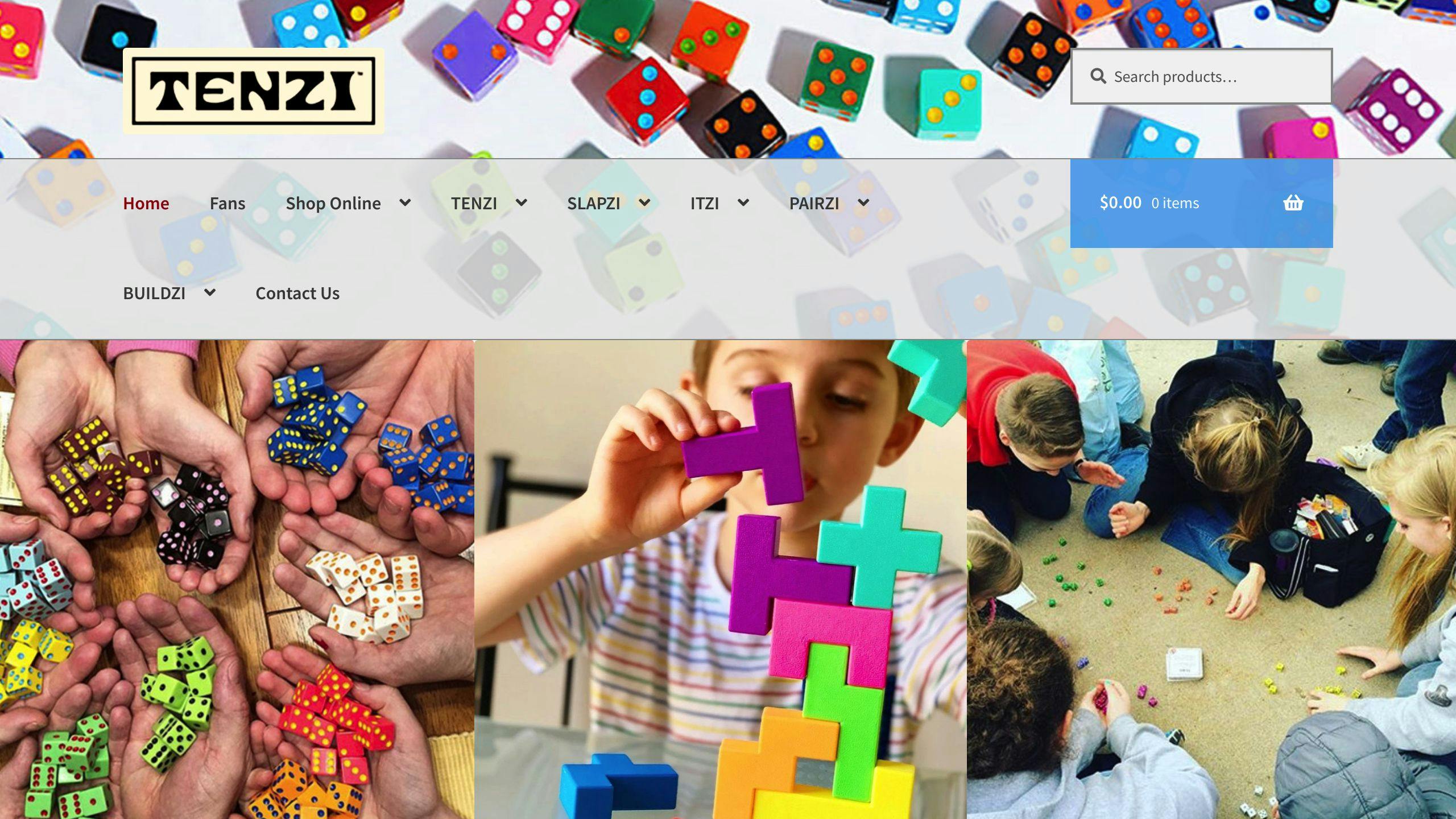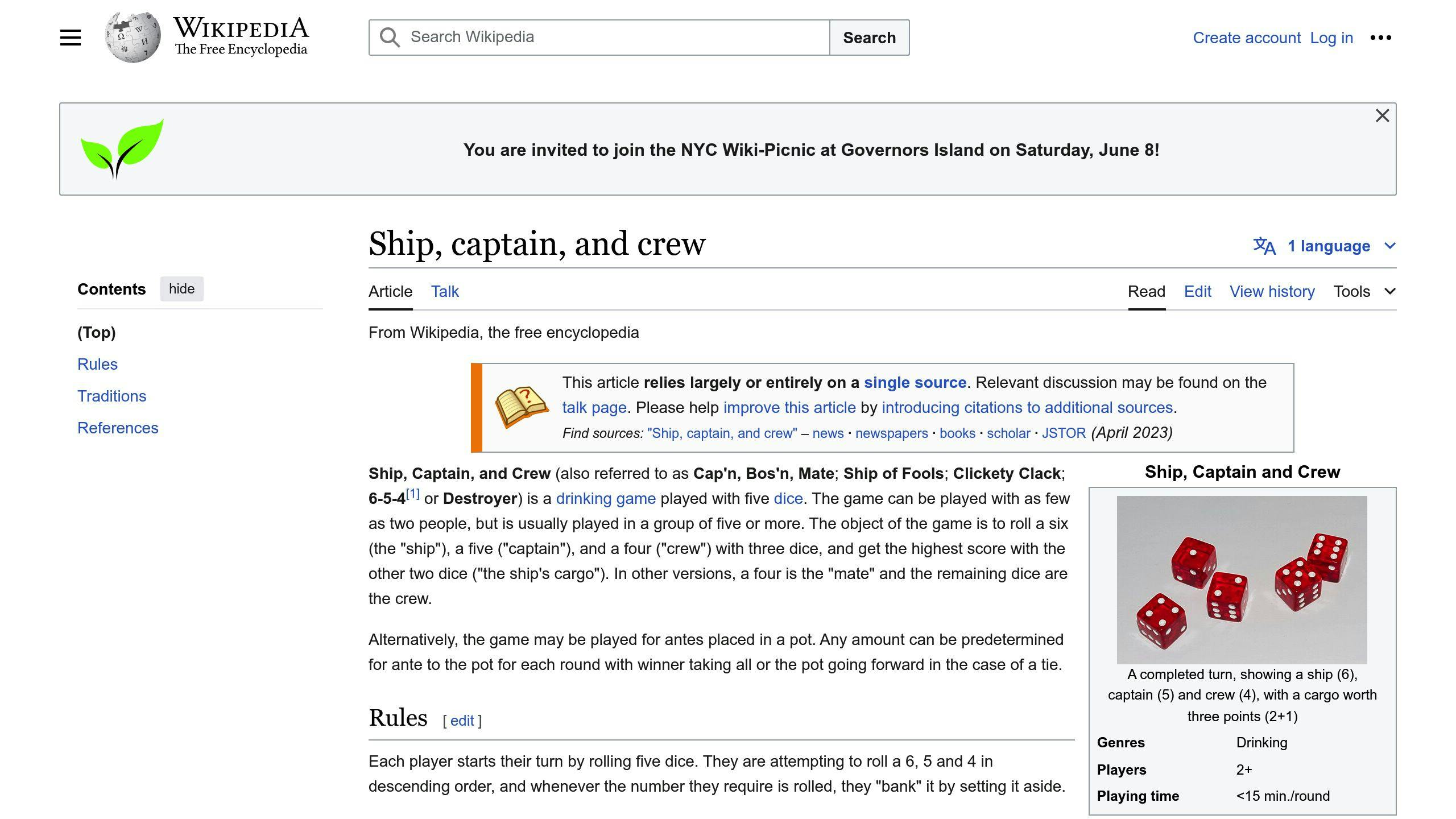- Related video from YouTube
- Things You Need
- General Tips for Solo Play
- Yahtzee Solo
- Zombie Dice Solo
- Tenzi Solo
- Liar's Dice Solo
- Ship Captain Crew Solo
- Left Center Right (LCR) Solo
- Craps Solo
- Fantasy Dice Game Solo
- Cooperative Dice Game Solo
- Custom Dice Game Solo
- Tips and Advice
- Final Thoughts
- FAQs
10 Dice Games Converted for Solo Play
Convert 10 classic dice games for single-player fun:
- Yahtzee
- Zombie Dice
- Tenzi
- Liar's Dice
- Ship Captain Crew
- Left Center Right (LCR)
- Craps
- Fantasy Dice Game
- Cooperative Dice Game
- Custom Dice Game
Learn general tips for solo dice gaming:
- Simulate opponents by setting target scores or objectives
- Increase difficulty with rules like limiting rolls or requiring specific combinations
- Track progress using score sheets or spreadsheets
- Experiment with different dice combinations, scoring systems, and game objectives
Get rules and variations for each game, suitable for all skill levels. Enjoy the convenience of playing dice games alone, anytime and anywhere.
Related video from YouTube
Things You Need
To play dice games alone, you'll need a few basic items and some knowledge. Here's what you'll require:
Dice
- A standard set of six-sided dice (d6) is essential for most dice games. You can use one die or multiple dice, depending on the game.
- Some games may require special dice, such as custom engraved dice or dice with unique symbols. Make sure you have the right dice for the game you want to play.
Game Rules
- Familiarize yourself with the original rules of the dice game you want to play solo. You can find rulebooks online or in game stores.
- Understand the basic mechanics, objectives, and scoring systems of the game.
| Item | Description |
|---|---|
| Pencil and Paper | While some solo dice games can be played without writing anything down, others may require you to keep track of scores, progress, or game state. Have a pencil and paper handy if needed. |
| Basic Math Skills | Solo dice games often involve simple arithmetic operations like addition, subtraction, multiplication, and division. Brush up on your basic math skills to calculate scores and progress accurately. |
| Patience | Converting traditional dice games for solo play can take some trial and error. Be prepared to experiment and adjust rules. |
General Tips for Solo Play
Simulating Opponents
To play dice games alone, you can set a target score or goal to achieve within a certain number of rolls. This simulates playing against an opponent. For example, challenge yourself to roll a specific number of points within five rolls or try to beat a fictional opponent's score.
Creating Challenges
Make the game more difficult by introducing rules or limits. For instance, you can:
- Limit the number of rolls allowed
- Require rolling certain numbers or combinations
Tracking Progress
Keep a score sheet or use a spreadsheet to record your results. This helps you:
- See your improvement over time
- Feel a sense of accomplishment when achieving goals
Experimenting with Rules
Don't be afraid to try different:
- Dice combinations
- Scoring systems
- Game objectives
This allows you to create a unique solo experience tailored to your preferences.
| Approach | Description |
|---|---|
| Simulating Opponents | Set target scores or objectives to achieve within a certain number of rolls. |
| Creating Challenges | Introduce rules or restrictions to increase difficulty, such as limiting rolls or requiring specific combinations. |
| Tracking Progress | Keep score sheets or use spreadsheets to monitor your results and improvement over time. |
| Experimenting with Rules | Try different dice combinations, scoring systems, or game objectives to create a unique solo experience. |
Yahtzee Solo

What is Yahtzee?
Yahtzee is a fun dice game where you roll five dice to score points in different categories. It requires strategy and luck, making it an enjoyable challenge for solo players.
How to Play Yahtzee Alone
To play Yahtzee by yourself, follow these simple rules:
- Set a Target Score: Challenge yourself to reach a specific score within a certain number of rolls.
- Roll the Dice: Roll all five dice and try to score points in categories like pairs, triples, runs, and Yahtzee (five of the same number).
- Keep or Re-roll Dice: After each roll, decide which dice to keep and which to re-roll to maximize your score.
- Track Your Progress: Use a score sheet or spreadsheet to track your scores and see how you improve over time.
Pros and Cons
| Pros | Cons |
|---|---|
| Develops strategy and decision-making skills | No social interaction |
| Challenging and engaging | May become repetitive |
| Portable and easy to play | Limited scoring opportunities |
| Improves problem-solving abilities | No opponents to compete against |
Zombie Dice Solo

What is Zombie Dice?
Zombie Dice is a fun game where players take on the role of zombies trying to eat brains without getting shot by humans. It involves strategy and luck, making it enjoyable for solo play.
How to Play Alone
To play Zombie Dice by yourself, follow these simple rules:
- Set a Goal: Challenge yourself to reach a specific score within a certain number of rolls.
- Roll the Dice: Roll the 13 dice (4 yellow, 3 red, and 6 green) and try to score points by collecting brains while avoiding shotgun blasts.
- Keep or Re-roll: After each roll, decide which dice to keep and which to re-roll to maximize your score.
- Track Progress: Use a score sheet or spreadsheet to track your scores and see your improvement over time.
You can also try these solo variations:
- After rolling, randomly pull 3 dice and roll again, deducting any shotgun blasts from your total to represent humans hunting you.
- If you roll 3 blasts, roll again and deduct the additional brains from your current total.
Pros and Cons
| Pros | Cons |
|---|---|
| Develops strategy and decision-making | No social interaction |
| Challenging and engaging | May become repetitive |
| Portable and easy to play | Limited scoring opportunities |
| Improves problem-solving | No opponents to compete against |
Tenzi Solo

What is Tenzi?
Tenzi is a quick dice game where the goal is to roll all ten dice to show the same number. It's a simple game you can play anywhere, alone or with others.
How to Play Solo
To play Tenzi by yourself, follow these steps:
- Roll all ten dice.
- If all dice show the same number, mark your score and try to beat it.
- If the dice don't match, keep rolling until they do or you run out of rolls.
- Play as many rounds as you like, challenging yourself to improve your score each time.
Solo Variations
- Set a goal to reach a specific score within a certain number of rolls.
- Roll a few dice first, then add more to the roll, trying to get them all to match.
- Use different colored dice and try to match both numbers and colors.
Pros and Cons
| Pros | Cons |
|---|---|
| Develops strategy and decision-making | No social interaction |
| Engaging and portable | May become repetitive |
| Improves problem-solving | Limited scoring opportunities |
| No opponents to compete against |
Liar's Dice Solo

What is Liar's Dice?
Liar's Dice is a fun dice game that involves bluffing and strategy. Players take turns rolling dice and making claims about the outcome. The goal is to be the last player with dice remaining.
How to Play Alone
To play Liar's Dice by yourself, follow these steps:
- Roll five dice to start.
- Make a claim about the outcome, like in the multiplayer version.
- Instead of challenging another player, challenge yourself. Try to beat your own claim by rolling the dice again.
- If you succeed, mark your score and try to beat it in the next round.
- If you fail, remove one die from your pool and try again.
- Play as many rounds as you like, aiming to improve your score each time.
Pros and Cons
| Pros | Cons |
|---|---|
| Develops strategy and decision-making | No social interaction |
| Engaging and portable | May become repetitive |
| Improves problem-solving | Limited scoring opportunities |
| Can be played anywhere | No opponents to compete against |
Variations
You can modify the solo rules to suit your preferences. For example:
- Adjust the number of dice used
- Change the way you make claims or score points
- Add extra rules to increase difficulty
The key is to create a challenging and enjoyable experience for solo play.
Ship Captain Crew Solo

What is Ship Captain Crew?
Ship Captain Crew is a fun dice game where you roll five dice. The goal is to roll:
- A 6 (the Ship)
- A 5 (the Captain)
- A 4 (the Crew)
You then score points with the two remaining dice (the Cargo).
How to Play Alone
To play Ship Captain Crew by yourself:
- Roll all five dice.
- Try to roll a 6, 5, and 4 in any order.
- If you succeed, score points with the two remaining dice (the Cargo).
- If you fail, remove one die and try again.
- Keep playing rounds, aiming to improve your score each time.
Pros and Cons
| Pros | Cons |
|---|---|
| Develops strategy and decision-making | No social interaction |
| Portable and easy to play anywhere | May become repetitive |
| Improves problem-solving | Limited scoring opportunities |
| No opponents to compete against |
Note: You can adjust the rules to suit your preferences, such as changing the number of dice or scoring system.
sbb-itb-9dfdbdd
Left Center Right (LCR) Solo
What is Left Center Right (LCR)?
Left Center Right (LCR) is a simple dice game where you roll dice to move chips between imaginary players and a center pot. The goal is to be the last player with chips.
How to Play LCR Alone
To play LCR solo, you'll need:
- 3 six-sided dice
- A set of chips or markers
Follow these steps:
- Start with 3 chips.
- Roll all 3 dice.
- For each "L" rolled, move 1 chip to the left (imaginary player).
- For each "R" rolled, move 1 chip to the right (imaginary player).
- For each "C" rolled, add 1 chip to the center pot.
- For each dot rolled, keep 1 chip.
- Keep rolling until you have no chips left.
To increase difficulty, introduce an opposing side with 3 dice plus additional dice equal to the number of "command cards" they would normally play. Activate units equal to the rolled number, and if all dice roll blanks, activate a unit from each zone.
Pros and Cons
| Pros | Cons |
|---|---|
| Easy to learn | Limited social interaction |
| Portable and convenient | May become repetitive |
| Improves problem-solving | No opponents to compete against |
You can adjust the rules to suit your preferences, such as changing the number of dice or scoring system.
Craps Solo

What is Craps?
Craps is a popular dice game where players bet on the outcome of rolling two dice. The goal is to win money by making successful bets.
How to Play Alone
To play Craps solo:
- Set up a Craps table layout.
- Place a bet on the Pass Line or Don't Pass Line.
- Roll the dice and determine the outcome based on the Pass Line or Don't Pass Line rules.
- Keep track of your wins and losses.
- Adjust your betting strategy as needed.
- Continue playing rounds to make a profit.
To increase difficulty, introduce an opposing side with additional dice and rules:
- Activate units equal to the rolled number.
- If all dice roll blanks, activate a unit from each zone.
Pros and Cons
| Pros | Cons |
|---|---|
| Engaging and challenging | May require rule modifications |
| Improves problem-solving | Limited social interaction |
| Portable and convenient | Can be repetitive if not varied |
Fantasy Dice Game Solo

What is Fantasy Dice Game?
Fantasy Dice Game is a fun dice game where players take on the role of brave heroes. You'll explore mysterious lands, battle monsters, and collect treasures. It's usually played with 2-4 players, but you can enjoy it alone too.
How to Play Solo
To play Fantasy Dice Game by yourself:
- Set up the game board and choose your hero character.
- Roll the dice to see what challenges and rewards you'll face.
- Use your hero's skills to overcome obstacles and defeat monsters.
- Manage your resources wisely and make smart decisions.
- Track your progress and adjust your strategy as needed.
To make solo play more challenging and exciting, you can:
- Set time limits for completing challenges
- Increase the difficulty of monsters
- Limit your resources or abilities
Pros and Cons
| Pros | Cons |
|---|---|
| Fun fantasy theme | Need to modify rules for solo play |
| Engaging gameplay and challenges | No social interaction |
| Portable and convenient | Can get repetitive without variety |
Cooperative Dice Game Solo

What is Cooperative Dice Game?
Cooperative Dice Game is a popular dice game where players work together to achieve a shared goal. It's usually played with 2-4 players, but you can enjoy it alone too.
How to Play Solo
To play Cooperative Dice Game by yourself:
- Set up the game board and choose your character.
- Roll the dice to see what challenges and rewards you'll face.
- Use your character's skills to overcome obstacles and defeat enemies.
- Manage your resources carefully and make smart decisions.
- Track your progress and adjust your strategy as needed.
To make solo play more challenging and fun, you can:
- Set time limits for completing challenges
- Increase the difficulty of enemies
- Limit your resources or abilities
Pros and Cons
| Pros | Cons |
|---|---|
| Fun gameplay and challenges | Need to modify rules for solo play |
| Portable and convenient | No social interaction |
| Cooperative theme | Can get repetitive without variety |
Note: The solo play rules and pros and cons may vary depending on the specific Cooperative Dice Game variant you're playing. Be sure to adjust the rules and expectations accordingly.
Custom Dice Game Solo
What is a Custom Dice Game?
A custom dice game is a game you create yourself. It can be a new game or a modified version of an existing one. The rules and goals can vary, but you usually roll dice to achieve certain objectives or overcome challenges.
Playing a Custom Dice Game Alone
To play a custom dice game by yourself, you'll need to adjust the rules for single-player gameplay. Here are some tips:
-
Set clear goals: Decide what you want to achieve, such as completing a certain number of challenges or earning a set amount of points.
-
Adjust difficulty: Since you won't have opponents, you may need to increase the difficulty to make the game more challenging and engaging.
-
Add new elements: Consider adding new features like time limits, resource management, or environmental effects to make the game more exciting and unpredictable.
-
Track progress: Keep track of your scores, achievements, or progress to motivate yourself and see how you improve over time.
Pros and Cons
| Pros | Cons |
|---|---|
| Customized for you: The game can be tailored to your preferences and interests. | Limited replayability: Without opponents, the game may become repetitive and less engaging. |
| Variety and challenge: You can introduce new mechanics and challenges to keep the game exciting. | No social interaction: Playing solo lacks the social aspect of playing with friends or family. |
| Portable: A custom dice game can be easily taken on the go. | Rule modifications: You may need to spend time modifying the rules for solo play. |
Tips and Advice
Adjust Difficulty
Since you won't have opponents, you may need to increase the difficulty to keep the game challenging and engaging. This can be done by:
- Adding time limits
- Managing resources
- Introducing environmental effects
Vary the Gameplay
To avoid repetition, introduce variety by:
| Variation | Description |
|---|---|
| Dice Combinations | Use different dice sets or combinations |
| Special Cards | Add power cards or random event cards |
| Random Events | Incorporate unexpected challenges or bonuses |
Set Clear Goals
Decide what you want to achieve, such as:
- Completing a certain number of challenges
- Earning a set amount of points
Clear goals will help you stay focused and motivated.
Track Progress
Keep track of your:
- Scores
- Achievements
- Overall progress
Tracking your progress will help you:
- Identify areas for improvement
- Feel a sense of accomplishment
Experiment and Adapt
1. Try New Mechanics
Don't be afraid to experiment with new mechanics or rules.
2. Find What Works
Adapt the game to find what works best for you.
3. Customize
The beauty of solo play is the flexibility to customize the game to your preferences.
Final Thoughts
Converting dice games for solo play can be a fun and rewarding experience. By adjusting rules to suit your preferences, you can create a unique gaming experience tailored just for you.
The benefits of solo play are numerous:
- Convenience: Play your favorite games anytime, anywhere, without relying on others.
- Focus: Concentrate on your own gameplay and strategy, improving your skills and decision-making.
- Flexibility: Customize the game to your liking, experimenting with new mechanics and rules.
| Benefit | Description |
|---|---|
| Convenience | Play anytime, anywhere, without relying on others |
| Focus | Concentrate on your own gameplay and strategy |
| Flexibility | Customize the game to your preferences |
We encourage you to try the solo dice game conversions in this guide. Experiment with new mechanics and rules, and share your own solo variants with the gaming community.
Remember, the beauty of solo play lies in its flexibility. Don't be afraid to try new things, make mistakes, and learn from them. With a little creativity, you can create a solo gaming experience tailored to your unique playstyle.
Happy gaming!
FAQs
What dice games can you play alone?
Yahtzee is a classic solo dice game. You roll five dice, trying to get certain combinations like three-of-a-kind or a full house. It's great for practicing math and probability skills.
Other fun solo dice games include:
| Game | Description |
|---|---|
| Zombie Dice | Roll dice to collect brains while avoiding shotgun blasts |
| Tenzi | Roll all ten dice until they show the same number |
| Liar's Dice | Bluff about your dice rolls and challenge yourself |
| Ship Captain Crew | Roll a 6, 5, and 4, then score with the remaining dice |
You can also adapt cooperative dice games for solo play. Manage multiple roles and strategies on your own for an extra challenge.
Creating Your Own Solo Dice Game
If you're feeling creative, design your own custom solo dice game! Tailor the rules, objectives, and mechanics to your preferences. This allows for endless variety and replayability.
Some ideas:
- Set clear goals: Complete a certain number of challenges or earn a target score.
- Adjust difficulty: Add time limits, resource management, or random events.
- Introduce new elements: Power cards, environmental effects, or unexpected bonuses.
The key is finding what works best for you. Solo play offers flexibility to experiment and customize the experience.